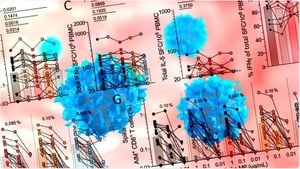The Ibovespa, Brazil's main stock market index, opened on February 25, 2025, with positive momentum, largely responding to the recently released IPCA-15 inflation data, which indicated less-than-expected inflation. The index climbed as investors reacted to both economic indicators and the remarks from key politicians, including Finance Minister Fernando Haddad.
At around 10:11 AM (Brasilia time), the Ibovespa was up 0.27% to 127,742 points. Meanwhile, the commercial dollar rose by 0.32%, trading at 5.7968 BRL. The IPCA-15 reported a 1.23% increase, below expectations set by Reuters' survey, which forecasted 1.33%. According to Alison Correia, analyst and co-founder of Dom Investimentos, this rise was anticipated due to the end of the energy bonus from Itaipu.
Investors were also cautious due to renewed tariff threats from U.S. President Donald Trump, paying close attention to the words of Haddad during the BTG Pactual CEO Conference 2025 held on the same day. Haddad expressed his desire to eliminate Brazil's deficit by 2024, noting setbacks like revenue losses due to the Emergency Recovery Program for the events sector, known as Perse.
According to additional reports, the increase recorded by the IPCA-15 was influenced by rising costs of residential electricity during Brazil's summer and marked higher educational expenses, such as school supplies and enrollment fees. With January only seeing a 0.11% rise, the 1.23% inflation for February marks the highest rate since April 2022.
The market's reaction was mixed, with standout companies such as Embraer making headlines after securing substantial new aircraft orders from Japan's ANA Holdings, contributing positively to its stock prices, which rose by 4.73%. Conversely, companies like Marcopolo and MRV&Co experienced declines amid disappointing quarterly earnings reports.
Haddad's remarks stirred the market as well; he was quoted as stating, "The government will advance on its reform agenda." He addressed the challenges posed by the business sector, which he critiqued as reliant on lobbying and privileges, indicating the need for modernization and efficiency.
Concurrent with local developments, global factors also played substantial roles. Investors were wary of the economic trend as U.S. markets took on mixed performances, with the Dow Jones falling by 0.07% amid concerns related to political tariffs and broader economic instability, especially surrounding forthcoming inflation data releases.
Asian markets remained largely negative, influenced by tariff rhetoric from Trump and careful assessments surrounding South Korea's recent interest rate cuts from 3% to 2.75%. The broader impact of such geopolitical and economic policies remains significant as investors adjust their expectations based on these signals.
Despite the pressures from the international arena, local dynamics seemed to buoy the Ibovespa, with domestic corporations leading the rally. Notably, the banking sector showed marked recovery with stocks from Itaú, Bradesco, and Santander rising by 0.86%, 0.65%, and 0.8%, respectively. These increases reflect confidence among investors amid fiscal uncertainties and corporate financial disclosures.
Further data will emerge as companies like Marcopolo share their fourth-quarter results and as the U.S. release consumer confidence data, highly anticipated by both Brazilian and global investors. Investors are hopeful for clarity on fiscal measures and economic health as Haddad and other leaders navigate these turbulent waters.
Overall, the Ibovespa's rise against the backdrop of seemingly complicated inflation dynamics reflects the careful balancing act faced by Brazilian policymakers, particularly as they contend with pressures both locally and globally. The market's reactions to IPCA-15 being lower than expected served as momentary relief, fostering cautious optimism among investors amid continuing economic developments and rising inflationary concerns.



